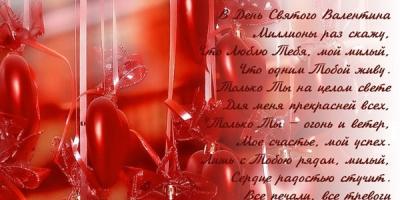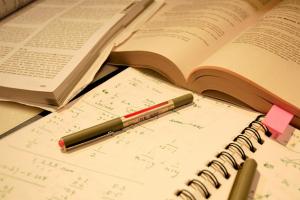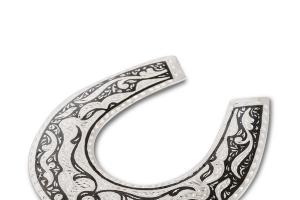Preview:
To use the preview of presentations, create a Google account (account) and sign in: https://accounts.google.com
Slides captions:
Moral and patriotic education of children preschool age
Love for the native land, native culture, native speech begins with small things - love for one's family, for one's home, for one's kindergarten. Gradually expanding, this love turns into love for home country, to its history, past and present, to all mankind. D.S. Likhachev
Introduction In modern conditions, when profound changes are taking place in the life of society, one of the central areas of work with the younger generation is becoming patriotic education. Now, in a period of instability in society, there is a need to return to the best traditions of our people, to its centuries-old roots, to such eternal concepts as family, kinship, homeland. The feeling of patriotism is multifaceted in its content: it is love for one's native places, and pride in one's people, and a sense of inseparability with others, and a desire to preserve and increase the wealth of one's country. Being a patriot means feeling like an integral part of the Fatherland. This complex feeling arises even in preschool childhood, when the foundations of a value attitude to the world around are laid, and is formed in the child gradually, in the course of cultivating love for one's neighbors, for kindergarten, for one's native places, one's native country. Preschool age, as a period of personality formation, has its own potential for the formation of higher moral feelings, which include the feeling of patriotism.
The tasks of educating a child in love and affection for his family, home, kindergarten, street, city; formation of a careful attitude towards nature and all living things; education of respect for work; development of interest in Russian traditions and crafts; formation of elementary knowledge about human rights; expansion of ideas about Russia, its capital; acquaintance of children with the symbols of the state: coat of arms, flag, anthem; development of a sense of responsibility and pride in the achievements of the Motherland; the formation of tolerance, a sense of respect and sympathy for other people, peoples, their traditions.
The principles of constructing the work “positive centrism” (selection of knowledge that is most relevant for a child of this age); Continuity and continuity of the pedagogical process; A differentiated approach to each child, maximum consideration of his psychological features, opportunities and interests; Rational combination different types activities adequate to the age balance of intellectual, emotional and motor loads; Activity approach; The developmental nature of education based on children's activity.
To implement the moral and patriotic education of preschool children, it is necessary: Creation of favorable material and technical and social conditions; Updating the content of education, selecting the most interesting and accessible material based on the experience and feelings of children; Consistent orientation to the cultural conformity of education, designed to ensure the formation of the spiritual world of man; Close contact on this problem with the family, relying on its traditions and experience.
The system and sequence of work on the moral and patriotic education of children. Patriotic education Hello, it's me! My family My garden Traditions My country My city
Thematic blocks of work with preschoolers on raising a sense of patriotism
Block "Hello, it's me!" Formation in children of ideas about themselves as a person who has the right to individual differences from others. Show variety of names. help the child realize their own individuality, increase self-esteem; understand their own importance in the hearts of their parents (this is especially important for those children whose parents are not prone to manifestations of excessive tenderness and whose upbringing is strict);
Organized activity middle group: Round dance games: “You rather, Tanya, hide ...”, “Recognize by voice” Leisure “Name day” “Name holiday” Senior group: “Our Names” Project “My Name” preparatory group: Didactic exercises: “I and the universe”, “Create your own coat of arms” “Album “This is me!” "Who will I be?"
Block "My family" To instill in children a sense of pride in their family; cultivate love for one's home; to teach to be more attentive to the events in their family, to be interested in the affairs and traditions of their native hearth.
Organized activities Middle group: Acquaintance with the composition of the family. Making a family album Didactic exercise “Build a family” Creating a privacy corner with family photos Celebrating the birthday of a kindergarten Senior group: Projects: “My family”, “ Family traditions: leisure, collections” Photo album “One day in our family” Exchange of information between parents Preparatory group: Album “ Friendly family” Projects: “Coat of Arms”, “Family Traditions” Visiting city exhibitions, museums
Block "My garden" To form a desire to attend a preschool institution, meet friends; bring up respectful attitude to the staff of the kindergarten; to instill a careful attitude to the work of adults, a desire to provide all possible assistance; to teach to remember the way to the kindergarten, its address; to acquaint preschoolers with visits to kindergarten, to cultivate a desire to maintain order in their group, on their site.
Organized activity Medium group Photo album “Me and my friends Our birthdays! Senior group Exhibition of children's works "My beloved kindergarten» Album "Route from home to kindergarten" Preparatory group Album with stories "My most best friend» Birthday of the kindergarten.
Block "My City" to acquaint children with the history of Peterhof. to educate preschoolers respect for people of various professions working in the city; give an idea about the transport of the city, its nature; instill interest in the historical and cultural heritage of their people; to form a respectful attitude towards veterans of the Great Patriotic War of their native city.
Organized activity Middle group Corner "My city" D / and "Collect a picture" "Lay out the silhouette" Senior group Corner "My Peterhof" "Labyrinths" D / and "Find whose shadow" Preparatory group Corner "I live in Petrodvorets" Album "My Beloved Peterhof" Model of the microdistrict Albums for viewing in all age groups
Block "My country" To acquaint with the state symbols of Russia. To give knowledge about the country in which we live (cities, nationalities, wealth of our country, folk art) To acquaint with a map, a globe. Get to know the holidays.
Organized activity Middle group Album for viewing Senior group Album "Cities of Russia" Preparatory group Album "Broad is my native land" Exhibition of drawings "My Motherland - Russia"
Block "My traditions" To develop artistic taste in children, Creative skills; to cultivate a sense of pride and admiration for their small homeland with the help of the traditions of the Russian people and through museum pedagogy; instill interest in the cultural values of their own and other peoples.
Organized activities Holiday "Maslenitsa" Holiday "Easter" Day of Naum Gramotist Albums of folk arts and crafts Exhibitions of children's works. Master class on making dolls Acquaintance with oral folk art
Forms of work with children and their parents: Excursions; Walks; Joint educational activities Holidays and entertainment; Meeting evenings; Hiking trips. parent meetings Meetings of round tables Gatherings Subbotniks Consultations Visual campaigning Questioning Exhibitions Photo exhibitions Quizzes Creation of albums
Memo for parents Draw the attention of the child to the beauty of his native city During the walk, tell what is on your street, talk about the meaning of each object. Give an idea about the work of public institutions: post office, shop, library, etc. Observe the work of the employees of these institutions, note the value of their work. Together with your child, take part in the work of landscaping and gardening your yard. Expand your own horizons Teach your child to correctly evaluate his own actions and the actions of other people. Read books to him about the motherland, its heroes, about the traditions, culture of your people. Encourage your child for the desire to maintain order, exemplary behavior in public places.
Conclusion: Patriotism is a constant work of the mind and soul, love and respect for the elders, everyday efforts in order for our common homeland - Russia to become more powerful and more beautiful, so that citizens Russian Federation regardless of their nationality, they lived better and believed in the future of their children and grandchildren. This is respect for the historical past of the motherland and the traditions inherited from it; attachment to the place of residence.
In my group, based on analysis, monitoring and individual work with children and their parents, I identified a problem: children have superficial knowledge about their native country, their region, region, about the Motherland as a whole; parents do not pay due attention to the problem of patriotic education of preschoolers. Therefore, I consider the main direction in working with children on patriotic education to be the education of patriotism among preschoolers as the most important spiritual, moral and social value through the education of love for their native city, region, country.
IN last years there is a rethinking of the essence of patriotic education: the idea of educating patriotism and citizenship, acquiring an increasing social significance, is becoming a task of national importance. Raising patriotic feelings in preschool children is one of the tasks moral education, which includes the upbringing of love for loved ones, for kindergarten, for home, for native street, for native city and native country. The formation of love for the motherland among preschoolers from an early period is the stage of their accumulation of social experience of life in the conditions of a small motherland, the assimilation of accepted norms of behavior, relationships, familiarization with the world of their native culture. Therefore, patriotic education from preschool age is the only true way of successful early socialization of the individual, the formation of a stable connection between generations and ensuring the connection of a person with his native roots, his love for the fatherland, which begins with a conscious and responsible attitude to the small homeland.


To establish interaction between the family and the preschool educational institution on the formation of moral and patriotic feelings in children; To promote the upbringing in the child of love and affection for the family, home, kindergarten, native street, city; Contribute to the formation of respect for native nature and all living things; To promote the development of tolerance, a sense of respect and sympathy for other people.


My work is based on the hypothesis that the process of moral and patriotic education of preschool children will be more effective if game, verbal, visual, excursion and innovative methods are used. educational work.

When selecting methods for the implementation of the goals and objectives, I studied the following methodological scientific literature: “Patriotic education of preschoolers” by N. V. Aleshina, “Patriotic education of children 4-6 years old” by N. G. Komratova, “How does the Motherland begin?” L. A. Kondrykinskaya, “My Country” by V. I. Natarova, “Moral and Patriotic Education of Preschoolers” by N. D. Makhanev

Methodological support is reflected in photographs, albums and special literature (fiction and reference information). All this material enriches the children's understanding of the small Motherland. There are maps, booklets, diagrams, images of the symbols of Russia, the Altai Territory, the city of Barnaul.


The leading pedagogical idea is to accompany preschool children on the way to the formation of citizenship and patriotism, the formation and development of the competencies necessary for the successful socialization of the growing personality in the conditions of a small homeland (hometown).


My family. Members of my family. Our names and surnames. parental home. My dad is a defender of the Fatherland. My mom. Professions of parents. We are helpers Our kindergarten. Our group. Hometown. My native land. The nature of the edge. Cultural heritage. Historical monuments. Russia is my motherland. Moscow is capital of Russia. Coat of arms, flag, anthem. To live is to serve the Motherland. Our grandfathers wear medals.

The feeling of love for the motherland is acquired independently and experienced individually. The task of adults, both teachers and parents, is to awaken this feeling in the child, namely to awaken, and not to impose. And for this, it is necessary to adhere to the following principles when organizing the educational process: The principle of activity and independence The principle of differentiation The principle of historicism The principle of visibility The principle of humanization The principle of individual-personal orientation The principle of integrativity The principle of stages The principle of communication The principle of success The principle of cognitive expressiveness Positive centrism

The intensive change in the surrounding life, the active penetration of scientific and technological progress into all its spheres dictate to the teacher the need to choose more effective means education and training require qualitatively new approaches, the use of new technologies in educational - educational process. In my work on the topic, along with the traditional ones, I use innovative forms of work:




Creation of a subject-developing environment of the group; - Development of a methodical piggy bank; -Development and implementation of long-term planning of work with children; -Development and implementation of a plan for successive relations with social institutions (Children's Library 22, MBOU KSh "Barnaul Cadet Corps" 90, Puppet show"Fairy Tale", Russian Chamber Orchestra of Barnaul, etc.)

Conducting excursions with the participation of parents and children; - "Days of open doors" - Organization non-traditional forms work with parents (club "Young parents", "round table") - Involvement of parents and children in project activities on the topic; -Participation of children and parents in competitive activities at various levels; - Holding holidays and joint leisure activities.

Use of ICT technologies; - Conducting excursions; -Visiting social institutions within the framework of successive ties; -Organization of exhibitions, concerts, competitions, leisure activities. -Implementation of direct educational activities in accordance with the Federal State Educational Standards.



Conducting excursions with the participation of parents; - Conversations - consultations; - "Days of open doors" - Organization of non-traditional forms of work with parents (club "Young parents", "round table") - Involvement of parents in project activities on the topic; -Participation of parents in competitive activities in preschool educational institutions; - Holding holidays and joint leisure activities; -Questioning -Visual - informational material.


I distribute the experience of work within the preschool educational institution, at the city, interregional and all-Russian level: - Teachers' councils; -Consultations; -Open demonstration events for young teachers; - Demonstration events for students of BGPC 1; -Participation in competitive activities -of different levels.

Systematic and systematic work on the education of patriotic feelings in children contributed to the enrichment of the knowledge of preschoolers. Children learned a lot about our region, about its sights, about the customs and traditions of the Altai Territory and Russia. Replenishment of the active and passive vocabulary of children contributed to the formation of visual figurative thinking children. In play and work, friendly relations between children have improved, and the system of relations between children and parents has been enriched. I hope that the knowledge gained in kindergarten will be useful to the children in their later life.

This work experience can be disseminated among preschool educational institutions. There is a methodological support: -Forward planning work with children; - Methodical piggy bank: abstracts, visual and illustrative material, file cabinets, didactic games, teaching aids, multimedia presentations, literature.

Difficulties in the implementation of work on moral and patriotic education of preschool children arise on the part of parents, because due to the current workload, they do not always have the opportunity to take part in the activities carried out by me on the basis of a preschool institution. As a result, parents cannot fully apply their experience and knowledge in the process of moral and patriotic education of their children.

1. Patriotic education in the preschool educational institution./Authors-compilers E.Yu. Alexandrov's system and others - Volgograd: ed. "Teacher", Aleshina N.V. Familiarization of preschoolers with the surrounding and social reality. - M.: TsGL, Aleshina N.V. Patriotic education of preschoolers.: CGL, Aleshina N.V. Acquaintance of preschoolers with their native city and country (patriotic education) O.V., Shcherbakova I.A. – M.: ARKTI, My country. rebirth national culture and education of moral and patriotic feelings. A practical guide for educators and methodologists of preschool educational institutions // ed. comp. Natarova V.I. etc. - Voronezh: TC "Teacher", 2005.

7. Where does the Motherland begin. Experience in patriotic education in the preschool educational institution / ed. L.A. Kondrykinskaya. - M .: TC "Sphere", The system of patriotic education in preschool educational institutions: planning, pedagogical projects, development of thematic classes and event scenarios / ed.- comp. Alexandrova E.Yu. and others - Volgograd: Teacher, 2007.

“Russia ... like a word from a song, Birches young foliage, Around the forest, fields and rivers Razdolie, the Russian soul. I love you my Russia! For the clear light of your eyes! For the mind, for the feats of the saints, For a sonorous voice, like a stream, I love, I deeply understand Steppe pensive sadness! I love everything that is called One broad word Rus'! S.Vasiliev The main goal of the educator is to help show the children their hometown, where they live, in order to arouse in them feelings of admiration, pride and love. The education of these feelings in preschoolers is a very painstaking work that must be carried out systematically and systematically. It must be remembered that a preschooler perceives the reality around him emotionally, therefore, patriotic feelings for his native village (city) manifest themselves in a sense of admiration for his village (city).
The tasks of patriotic education are to educate a child in love and affection for his family, home, kindergarten, street, city; formation of a careful attitude towards nature and all living things; education of respect for work; development of interest in Russian traditions and crafts; formation of elementary knowledge about human rights; expansion of ideas about the cities of Russia; acquaintance of children with the symbols of the state (coat of arms, flag, anthem); developing a sense of responsibility and pride in the achievements of the country; the formation of tolerance, a sense of respect for other peoples, their traditions.

Where does the Motherland begin? The feeling of the motherland... It begins in a child with the relationship to the family, to the closest people to the mother, father, grandmother, grandfather. These are the roots that connect him with his home and immediate environment. For preschool children, Motherland is an abstract concept that cannot be touched or seen.

The first thing a child’s knowledge of the world begins with is an affectionate maternal smile, a quiet lullaby, kind eyes and warm maternal hands. I believe that it is impossible to instill in a child patriotic feelings for the Motherland without such concepts as: “love for a mother”, for home, for kindergarten, for one’s district ...

Our heritage Every nation has its own fairy tales, and all of them pass on from generation to generation the basic moral values: kindness, friendship, mutual assistance, diligence. “These are the first and brilliant attempts of Russian folk pedagogy,” wrote K.D. Ushinsky, and I don’t think that anyone was able to compete in this case with the pedagogical genius of the people. "It is no coincidence that K.D. Ushinsky emphasized that" ... education, if it does not want to be powerless, must be popular ". The works of oral folk art not only form love for the traditions of their people, but also contribute to the development of the individual in the spirit of patriotism.




When the children began to understand and independently understand this concept, my task now was to teach them to love everything that surrounds them. This is the Motherland. At the age of 4-5 years, children should know that every tree, bush next to the house is already the Motherland and it must be loved and protected.

What information and concepts about their hometown can children learn? The range of objects that older preschoolers are introduced to. expanding is the area and the city as a whole, its sights, historical sites and monuments. Children are told in whose honor they are erected. An older preschooler should know the name of his city, his street, the streets adjacent to it, and also in whose honor they are named. They explain to him that every person has a home and a city where he was born and lives. This requires excursions around the city, to nature, observations of the work of adults, where each child begins to realize that work unites people, requires them to coherence, mutual assistance, and knowledge of their business. And here the acquaintance of children with the folk crafts of the region, folk craftsmen is of great importance.

Journey into history In patriotic education, the example of adults, especially close people, is of great importance. Based on specific facts from the life of older family members (grandfathers and grandmothers, participants in the Great Patriotic War, their front-line and labor exploits), it is necessary to instill in children such important concepts as "duty to the Motherland", "love for the Fatherland", "hatred of the enemy", "labor feat", etc. It is important to bring the child to the understanding that we won because we love our Motherland, the Motherland honors its heroes who gave their lives for the happiness of people. Their names are immortalized in the names of cities, streets, squares, in their honor monuments were erected.



In the classroom, I was faced with the task of teaching children how to live and work, so that the Motherland would be proud of them. Millions of sons of our Motherland fell for the fact that the world would not be plunged into fascist slavery. Our people survived the most terrible war, the guys will learn more about this war when they grow up and go to school.

The country where we live The continuation of this work is the acquaintance of children with other cities of Russia, with the capital of our Motherland, with the anthem, flag and emblem of the state. everywhere people work for everyone (teachers teach children; doctors treat the sick; workers make cars, etc.); traditions are observed everywhere: the Motherland remembers the heroes who defended it from enemies; people of different nationalities live everywhere, work together and help each other; people cherish and protect nature; there are general professional and public holidays etc.

I AM A RUSSIAN, I AM PROUD OF MY COUNTRY Patriotism is devotion and love for one's homeland, for one's people. Native nature provides us with excellent opportunities in the education of patriotism, it is she who brings up emotional responsiveness in children, a sense of beauty. The education of patriotism is also impossible without the formation of feelings: satisfaction and attachment to the place of birth and residence, a certain circle of people, which expands and deepens from meetings and communication with other adults: residents of the house, village, employees of the educational school and children's art school, library, museum, when visiting local attractions.


The principles of patriotic education "positive centrism" (selection of knowledge that is most relevant for a child of a given age); continuity and continuity of the pedagogical process; a differentiated approach to each child, maximum consideration of his psychological characteristics, capabilities and interests; a rational combination of different types of activity, an age-appropriate balance of intellectual, emotional and motor loads; activity approach; the developing nature of education based on children's activity.

Thematic planning The planning of this work is most expedient on the following topics: “My family”, “My favorite kindergarten”, “My district and the city where I live”, Our Motherland - Russia”, “Our defenders”, etc. Work on each topic should include classes, games, excursions, and holidays on some topics.

Relationship with Parents The formation of patriotic feelings is more effective if the kindergarten establishes a close relationship with the family. The need to involve the family in the process of familiarizing preschoolers with the social environment is explained by the special pedagogical opportunities that the family has and which cannot be replaced by a preschool institution: love and affection for children, emotional and moral richness of relationships, their social, and not selfish orientation, etc. All this creates favorable conditions for the education of higher moral feelings. The kindergarten in its work with the family should rely on parents not only as assistants children's institution but as equal participants in the formation of a child's personality.

Speech at the Pedagogical Council Pedagogical workers have the necessary professional qualifications. A survey was conducted with teachers on working with parents and an express survey on the problem of patriotic education of children in kindergarten. In order to improve performance pedagogical work teachers' councils, consultations, events with parents were held. The work on self-education of teachers continued. Teachers received new information about programs, non-traditional methods and techniques. Enough high level passed open classes: "Streets of the city of Moscow"; "Streets of the city of Moscow"; "Our area Medvedkovo"; "Our area Medvedkovo"; "Moscow Kremlin"; "Moscow Kremlin"; "Moscow nature"; "Moscow nature"; "Victory Day". "Victory Day".

From work experience preschool teacher"Patriotic education of preschool children"
Description of work: This material will be useful for children of middle, older and preparatory age.This material is constantly used in the educational process to educate children in love for their homeland.
***
Patriotism- this is devotion to one's Fatherland, and the desire to do everything possible to preserve the cultural identity of each people.
The purpose of our preschool is the improvement of patriotic education, the development of the child's personal culture, as the basis of his love for the Motherland.
The urgency of the problem lies in the fact that modern children know little about their hometown, country, features folk traditions, often indifferent to close people, including group mates, rarely sympathize with someone else's grief.
Obviously insufficient is the work with parents on the problem of moral and patriotic education in the family.
Tasks for patriotic education:
education in a child of love and affection for his family, home, kindergarten, street, city;
formation of a careful attitude towards nature and all living things;
education of respect for work;
development of interest in traditions and crafts;
formation of elementary knowledge about human rights;
expansion of ideas about Donbass;
acquaintance of children with the symbols of the Republic (coat of arms, flag, anthem);
Development of a sense of responsibility and pride in the achievements of the Republic;
the formation of tolerance, a sense of respect for other peoples, their traditions.
Forms and methods of patriotic education of preschoolers:
Children's drawings, reflecting a strong and pure feeling of love for their hometown, native nature, allow them to create expressive images based on their own observations, and also make them think about their attitude to the world around them.
Conversations with children about the Republic, hometown.
Acquaintance of children with the symbols of the Republic (flag, coat of arms, anthem).
Observations - one of the manifestations of patriotism - love for nature.
Reading fairy tales, listening to music, looking at illustrations.
Patriotic education is possible through any kind of folk tales. A fairy tale is a fertile and irreplaceable source of education of love for the Motherland. A fairy tale is the spiritual wealth of culture, knowing which, a child learns his native people with his heart.
Labor education
Encouraging children to work, which is based on the desire to do something for others. The work of a preschooler is small and uncomplicated, but it is necessary for the formation of his personality.
A large place in patriotic education belongs to the game, since it is the main activity of a preschooler. Children play with household, labor, social subjects.
A special place in patriotic education is given to holidays. The holiday is the most ancient element of the culture of human society and an unconditional part of its life.
Love for the Motherland begins with small things - with love for a mother, with respect for the people around you, with your home, street, with the ability to find something around you that is worthy of admiration.
Holidays are organized in our preschool institution, dedicated to the Day Victory.
Results:
Children's knowledge about their native city, the Republic has significantly expanded.
Get to know the symbols.
There was a desire to maintain order in the group and on the site of the kindergarten.
We got acquainted with oral folk art, nursery rhymes, holidays, with the heroes of fairy tales and their exploits.
The knowledge of children about professions has expanded.
A respect for nature has developed.
Children correctly assess their own actions and the actions of other people.
Vocabulary has expanded significantly.
Increased self-control and self-esteem
acquired knowledge.
The activity of parents in preparing and holding joint events has increased.
Conclusion: The upbringing of patriotic feelings is a set of universal values: the concepts of love, friendship, kindness, truth merge with cognitive activity, ideas about modern reality, active - practical attitude to the world.
Each person needs to know the native nature, history and culture of the people to which he belongs, his place in the world around him.
We must be sure that children and grandchildren will be fine in the future, we must respect ourselves and teach this to others. If the integrity of this process is violated, the link between generations will be destroyed. The education of patriotic feelings is and will be one of the main components of the education of a small citizen.
In the future, we plan to continue working on this topic, since we believe that patriotism is the main feature of the people, it helps to cultivate a sense of love for the native land and the world around.
And it depends on us adults what our children will be like, what they will carry away from childhood.
Presentation on the topic: Patriotic education of preschool children

















1 of 17
Presentation on the topic: Patriotic education in the preschool educational institution
slide number 1

Description of the slide:
The development of social and personal qualities of preschoolers through patriotic education MBDOU kindergarten No. 45 "Yagodka" of a general developmental type with priority implementation of activities in the social and personal direction of development of children "Where does the Motherland begin?" The work was completed by: teacher Ivanova E.M. 900game.net
slide number 2

Description of the slide:
Patriotism - love for the Motherland, devotion to it, responsibility and pride for it, the desire to work for its benefit, protect and increase its wealth - begins to form already at preschool age. One cannot be a patriot without feeling a personal connection with the Motherland, without knowing how our ancestors, our fathers and grandfathers loved and cherished it. Already in kindergarten, as a result of long-term, systematic, purposeful educational work, elements of citizenship and patriotism can be formed in children. The love of a preschool child for the Motherland begins with love for his relatives, his home, kindergarten, city. After all, vivid impressions of native nature, of history native land received in childhood, remain in the memory of a person for life.
slide number 3

Description of the slide:
Relevance of the problem The problem of patriotic education of the younger generation is one of the most important today. Children, starting from preschool age, suffer from a lack of knowledge about their native city, country, and the peculiarities of Russian traditions. Indifferently relate to close people, comrades in the group. They experience a lack of sympathy and compassion for the grief of others. The system of work with parents on the problem of moral and patriotic education has not been sufficiently formed.
slide number 4

Description of the slide:
Tasks that solve these problems To improve the educational, professional, theoretical and practical knowledge of teachers on the problem of moral and patriotic education of preschoolers. To systematize the knowledge and skills of teachers and children on this issue. To develop in a child of senior preschool age social and personal qualities such as compassion, sympathy, feeling dignity and awareness of oneself as a part of the surrounding world. To help parents develop and maintain the curiosity of children in the process of joint activities.
slide number 5

Description of the slide:
Forms of work with children on civic-patriotic education: Targeted walks to the monuments of military glory, along the streets named after the heroes of the Great Patriotic War; Excursions to memorable places. The content of such excursions are: observation of ritual moments (laying flowers at the monument, a minute of silence, meeting with participants in the war). The same excursion is carried out with the participation of parents. They are offered a "Weekend Route" with detailed description visited object and recommendations for accessible familiarization of the child with the monument. Reading fiction, corresponding to the age category of children - about the defenders of their native land, the Fatherland. Parents are given recommendations for visiting district libraries with their children. The use of audio and video equipment for listening to musical works about the Motherland, showing children films about the exploits of the Russian people.
slide number 6

Description of the slide:
Examination of illustrations, paintings, reproductions and newspaper clippings containing historical facts and events from the surrounding life. Meetings with participants of the Great Patriotic War and labor veterans, participation in public holidays: "City Day", "Mother's Day", " Dad's holiday”, “Victory Day”, etc. Preparation of thematic exhibitions dedicated to anniversaries, making souvenirs for war and labor veterans. Creation of mini-museums of military and labor glory, defenders of the fatherland, the theater of Russian Costume. Carrying out actions: “Feed the birds in winter”, “Green Patrol”, “Greening the territory of the kindergarten”. Equipping the subject-developing environment of the kindergarten group: making attributes for the games "Border Guards", "Sailors", "Cosmonauts", etc. production of paraphernalia of state symbols of Russia, the city; album design: "Sights of our city", "My family", "It's good in our garden", etc. Creation of the newspaper: “My sports family”, “The sun rises in the morning, calls me to kindergarten”.
slide number 7

Description of the slide:
Success in patriotic education can only be achieved if the educator himself knows and loves the history of his country, his people. He must be able to select the knowledge that will be available to preschool children, something that can cause feelings of delight and pride in children. But no knowledge will give a positive result if the educator himself does not admire his country, his city. “In education, everything should be based on the personality of the educator, because the educational power flows only from the living source of the human personality. No statutes and programs, no artificial organism of the institution, no matter how cunningly invented, can replace the individual in the work of the educator. K. D. Ushinsky.
slide number 8









